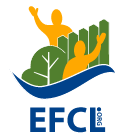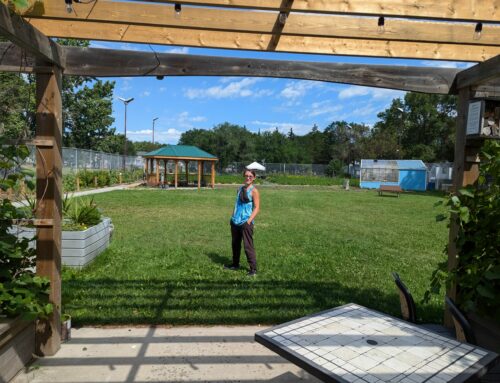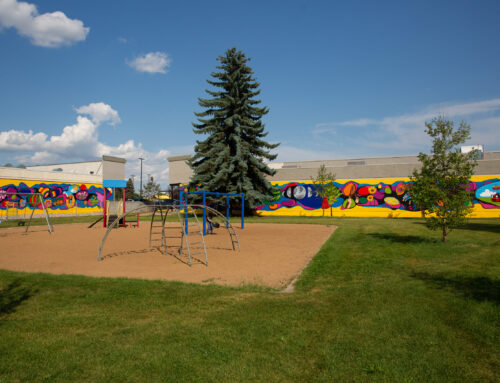Christine Causing, left, and Nor’Ali McDaniel have organized a series of workshops celebrating Indigenous culture and taking steps towards reconciliation for Holyrood Community League.
Often, the hardest part of doing something is simply beginning. This can feel acutely true when the something you’re trying to do is find a way to work Indigenous reconciliation into your day to day life. It’s a big topic, with a fraught history, and ongoing challenges: knowing how to take the first step can be overwhelmed by the fear of putting your foot in your mouth, if not someplace worse.
It’s a challenge that Nor’Ali McDaniel and Christine Causing of Holyrood Community League know too well. Together, they spearheaded the League’s efforts to undertake Indigenous reconciliation and allyship work, applying for a City grant and organizing a series of workshops, performances and cultural teachings in and around their neighbourhood over the past year and a half.

A flower made in one of Kalyn Kodiak’s Metis beading workshops.
McDaniel admits that, in the early days, she worried they had made a mistake pursuing something where they often had as much to learn as their neighbours. Thankfully for everyone involved, though, McDaniel and Causing embraced any awkwardness in the name of getting things done for the community.
“We knew we were going to mess up — and we have messed up!” exclaims McDaniel. “Like, once we didn’t make sure beforehand that a building allowed smudging. But a big part of it was being upfront about everything, asking questions, talking through things and finding a solution. Asking and listening has done a lot.”
Asking and listening to both the Indigenous groups and individuals they partnered with and the community also helped them find the best ways to plan programming that worked for everyone. Something they heard early on from performers like Chubby Cree, a hand drum group, and artisans like Kalyn Kodiak, who lead a Metis beadwork demonstration, was that they were consistently booked for events like National Indigenous Peoples Day and the National Day for Truth and Reconciliation well in advance, but filling the months in between could be challenging. They responded by having drumming at their Community League Day event and hosting weaving and beading workshops in January and April.
Meeting people and hearing their stories, seeing these people be so vulnerable, really opened my eyes to how important it is to bring this into the community
On the community side of things, they understood that not everyone was ready to do the heavy lifting of allyship straight away; as such, they started with more celebratory and low-stakes affairs. With the help of Sissy Thiessen Kootenayoo of Wase Saba Experiences, they crafted a series of workshop that lead from the celebration of the powwow and round dance to the practical knowledge of the gift protocol to the heavier work of addressing allyship and the findings of the Truth and Reconciliation committee. It gave participants, many of whom showed up for all three events, a gentler path into some hard topics.

Sissy Thiessen Kootenayoo of Wase Saba Experiences leads a workshop on the powwow.
“People need different doors,” says McDaniel of the event strategy. “It can be heavy and hard, and not everyone is in that space yet, even if they do want to learn.”
The careful approach and willingness to listen has paid off in myriad ways. According to Causing, Indigenous members of the community have been more present at League events, and people who have attended workshops have expressed gratitude for the new perspective. They were able to forge new partnerships with their local Anglican Church, St. Luke’s, which hosted a Treaty 6 Recognition Day event last August. Surrounding Leagues, like Stratheran and Forrest Terrace Heights, reached out and hosted some of the events, and have been eager to plan more. And the partnerships with Indigenous groups have helped successive events get both broader and deeper.
For McDaniel and Causing, it’s more than ample proof that taking that first step is the most important thing you can do — because every journey brings with it fresh perspective.
“Before, I never really thought of reconciliation as something that I could do,” says Causing. “It seemed so big, like it was something for the government to do, not an individual.
“But now that I’m involved in the work, I realize how important it is,” she adds. “Meeting people and hearing their stories, seeing these people be so vulnerable, really opened my eyes to how important it is to bring this into the community, and do it on that individual to individual level.”




